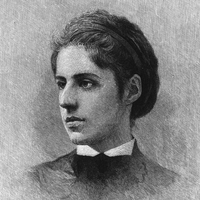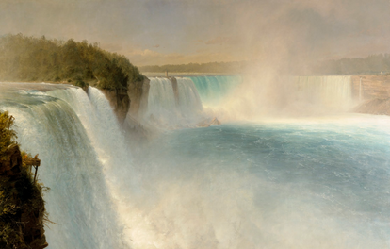Marjorie’s Wooing
THE corn was yellow upon the cliffs,
The fluttering grass was green to see,
The waves were blue as the sky above,
And the sun it was shining merrily.
“Marjorie, Marjorie! do you love me,
Faithfully, truly as I love you?”
The little lass reddened, and whitened, and smiled,
And answered him with her clear eyes of blue.
“Marjorie, you are but gentle and young;
I am too old and too rough for you.”
The little lass, trustfully giving her hand,
Answered, “I love you, faithful and true.”
“Marjorie, Marjorie, when shall we wed?”
“As soon as you will it,—to-morrow, to-day.”
“Marjorie, Marjorie, if you knew all,
Would you still say me the words that you say?”
“If I knew all?” said the little lass,
“I know you are Kenneth, the brave and strong;
I know that I love, and that you are good:
I will know it e’er, and have known it long.”
“Marjorie, Marjorie, if I should say
I fled from prison to come to you;
I stabbed a man all for jealous love;
I am not noble, nor good, nor true?”
“Kenneth, your eyes would belie your words,”
Boldly and bravely the lass replied.
“Why should God fill them with love and truth,
And your heart with cruelty, hate, and pride?”
“Marjorie, Marjorie, if I should say
That I loved many ere I loved you?”
“Ere you had seen me,” Marjorie said,
“ How could you know I was loving and true?”
“Marjorie, Marjorie, if I should say
That I was outcast on land and on sea?”
“All the more reason,” the little maid said,
“ Why you should ever be loved by me.”
“Marjorie, Marjorie, if I should say
That I was noble, and titled, and grand;
Lord of the woods, and the castle, and park,
Lord of the acres of corn o’er the land?”
Dropping a courtesy, the little lass said,
“Still should I love you and ever be true;
But if you found me too lowly and poor,
I should bid farewell and go die for you.”
“Marjorie, darling, I tell you then,
This is the truth, and the land is mine,
And the castle, the park, and the vessel far off,
And whatever is mine, is thine, dear, thine!”


